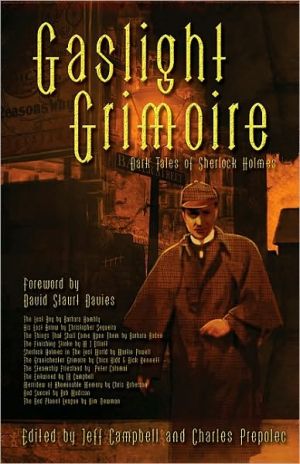
Gaslight Grimoire: Fantastic Tales of Sherlock Holmes PDF
Preview Gaslight Grimoire: Fantastic Tales of Sherlock Holmes
In his foreword, David Stuart Davies asserts that the authors of these 11 stories pitting Holmes against the supernatural are very well-versed in the world of Sherlock Holmes and Doctor Watson. Unfortunately, this authority fails to come through. The eloquence of the one standout, Barbara Roden's The Things That Shall Come Upon Them, only emphasizes what the others lack. Roden effortlessly involves Holmes in a mystery derived from M.R. James's classic tale of terror, Casting the Runes, featuring psychic sleuth Flaxman Low. By contrast, Martin Powell's Sherlock Holmes in the Lost World sees Holmes battling ape-men and dinosaurs without any display of his remarkable intellect, and M.J. Elliott's The Finishing Stroke pays so much homage as to neglect originality. As a whole, this mixed bag fails to differentiate itself from other similar anthologies. (Nov.)
Copyright © Reed Business Information, a division of Reed Elsevier Inc. All rights reserved.
This one seems like a natural. It’s well known that Sherlock Holmes’ creator, Arthur Conan Doyle, was deeply interested in the paranormal, a subject bursting with possibilities for the kind of mystery that only Holmes could solve—except that Conan Doyle had firmly established Holmes as investigating only real-world cases with real-world, logical solutions. This anthology, featuring such writers as Barbara Hambly, Chris Roberson, and Kim Newman, purports to present the kinds of Holmes stories Conan Doyle might have written if he had allowed Holmes to become involved with the otherworldly. The stories are a mixed lot, with characters ranging from Peter Pan to a 1940s Los Angeles private eye to old friends like Professor Moriarty and Inspector Lestrade, but unfortunately some of them read not like a story Conan Doyle might have written but like fan fiction—long on imagination but short on execution. Others, however, are a lot of fun, well written and entertaining. Holmes devotees may be a bit disappointed, but fans of fantastic fiction should be happy to see the famous detective stepping into their world. --David Pitt
